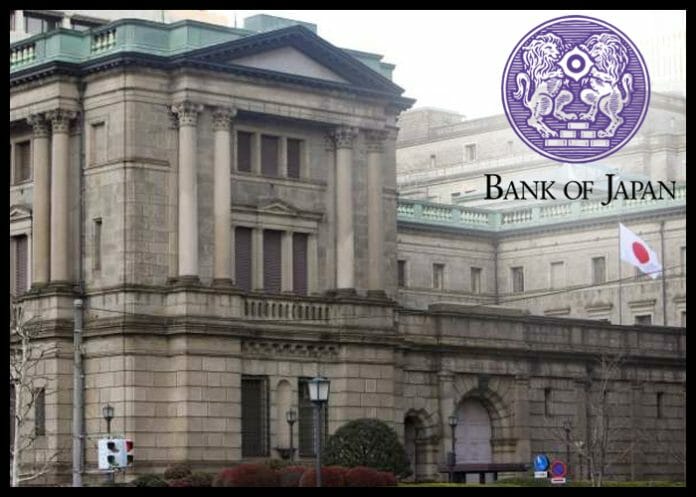Japan’s factory activity shrank at the softest pace in five months in March due to an expansion of inventories, but still-weak global and domestic demand conditions meant the post-COVID economic recovery will take a while to solidify.
The final au Jibun Bank Japan Manufacturing Purchasing Managers’ Index released on Monday rose to 49.2 in March from February’s 47.7, marking the slowest contraction since November 2022. It was also higher than the flash reading of 48.6.
“The health of the Japanese manufacturing sector showed signs of improvement at the end of the first quarter of 2023,” said economist Usamah Bhatti at S&P Global Market Intelligence, which compiles the survey.
“Both output and new orders fell at the softest rates for five months, though the latter still saw a solid reduction, with panel members signalling subdued market demand in both domestic and international markets,” Bhatti said.
Manufacturing output and new orders contracted for a ninth consecutive month, the survey showed, as customer and market demand remained weak. This was in contrast to the official manufacturing data released on Friday, which saw Japan’s factory output rise 4.5 per cent in February.
Japan’s economy has finally started to recover from the COVID-driven downturn, though a global slowdown and rising food prices hang over a full-blown rebound in the growth and the outlook for exports and consumption. Relatively high inflation also remains a potential drag on households.
The survey showed the sub-index gauging stocks of finished goods was at the highest since February 2009, while backlogs of work declined for six consecutive months, leading some firms with lower order volumes to focus on building post-production inventories.
Stocks of purchases expanded consecutively since October 2021 due to price hikes.
Factors including a surge in raw material prices and a weaker yen contributed to elevated input price inflation even as the rate of growth was the slowest since August 2021, while the pace of output price inflation expanded to a three-month high.
Supplier delivery delays continued the trend since January 2020 to stay below the 50.0 threshold, the survey showed.
Japan’s business sentiment falls to 2-year low
Japan’s business sentiment soured in January-March to hit the worst level in more than two years, a closely-watched central bank survey showed on Monday, as slowing global growth clouds the outlook for the export-reliant economy.
The service-sector mood, by contrast, recovered as easing border controls and an end to COVID-19 curbs heightened hopes for a rebound in tourism and consumption, the Bank of Japan’s tankan survey showed.
The survey will be among key data the central bank will scrutinise in producing fresh quarterly growth and inflation estimates at its next meeting on April 27-28 – the first one to be chaired by incoming Governor Kazuo Ueda.
The headline index measuring big manufacturers’ sentiment fell to plus 1 in March from plus 7 in December, Bank of Japan (BOJ) data showed, worse than a median market forecast for a reading of plus 3. It was the fifth straight quarter of deterioration and the worst level hit since December 2020.
Sentiment soured for a broad sector of manufacturers with many firms complaining of the impact of rising raw material and fuel costs, as well as slowing overseas growth and slumping chip demand, a BOJ official told a briefing.
Big non-manufacturers’ index rose for a fourth quarter to plus 20 from plus 19 in December, matching a median market forecast, the survey showed, as hopes of a rebound in tourism and service demand brightened morale among retailers and hotels.
Takeshi Minami, chief economist at Norinchukin Research Institute, expects external factors, such as the fallout from U.S. and European monetary tightening, to weigh on Japan’s exports and business sentiment.
“Given the fragile nature of Japan’s recovery, the BOJ is not in a situation where it can normalise monetary policy anytime soon,” he said.
Big firms plan to raise capital expenditure by 3.2 per cent in the fiscal year that began in April, less than market forecasts for a 4.9 per cent gain, the tankan showed.
Companies expect inflation to hit 2.8 per cent a year from now, 2.3 per cent three years from now and 2.1 per cent five years from now, the survey showed in a sign firms are bracing for inflation to remain above the central bank’s 2 per cent target for years to come.
Japan’s economy narrowly averted a recession in the final three months of 2022 and analysts expect any rebound in the January-March quarter to have been modest, as slow wage growth and rising living costs hurt consumption.
Many big firms promised hefty pay rises in spring wage talks with unions, offering policymakers hope that consumption will recover and take up the slack from an expected slump in exports.
The strength of the economy, as well as wage and inflation outlook, will be key to how soon the BOJ could tweak or end its bond yield control policy that has been criticised as distorting market pricing and hurting financial institutions’ margin. – Reuters









